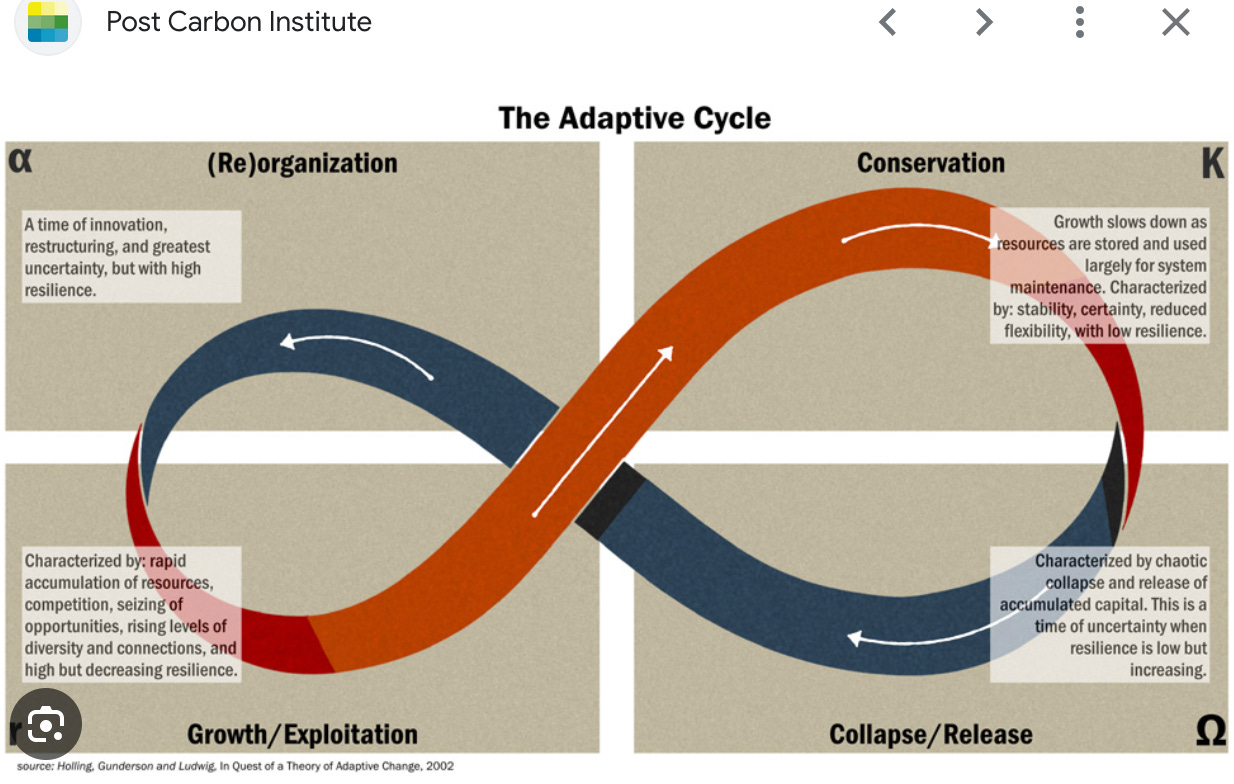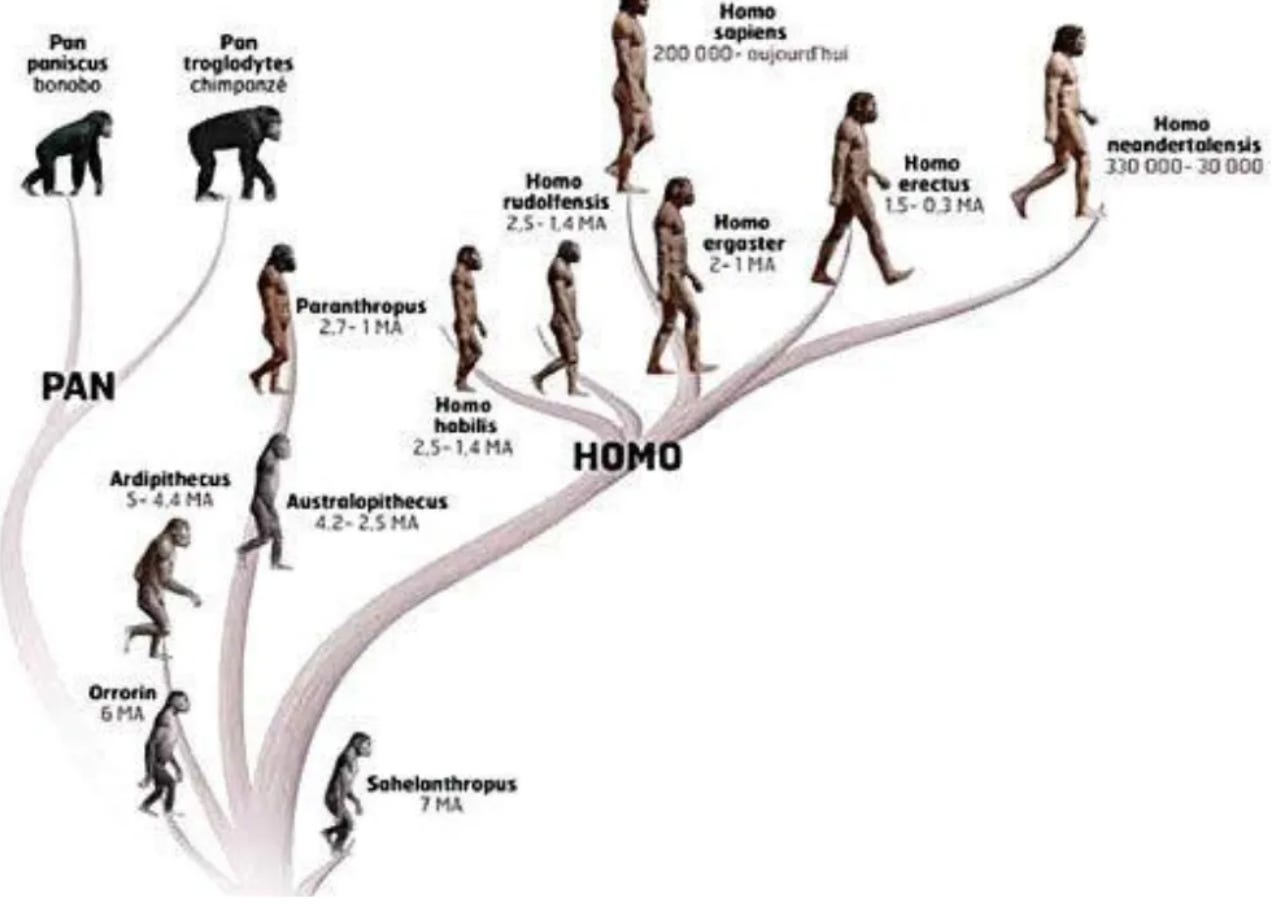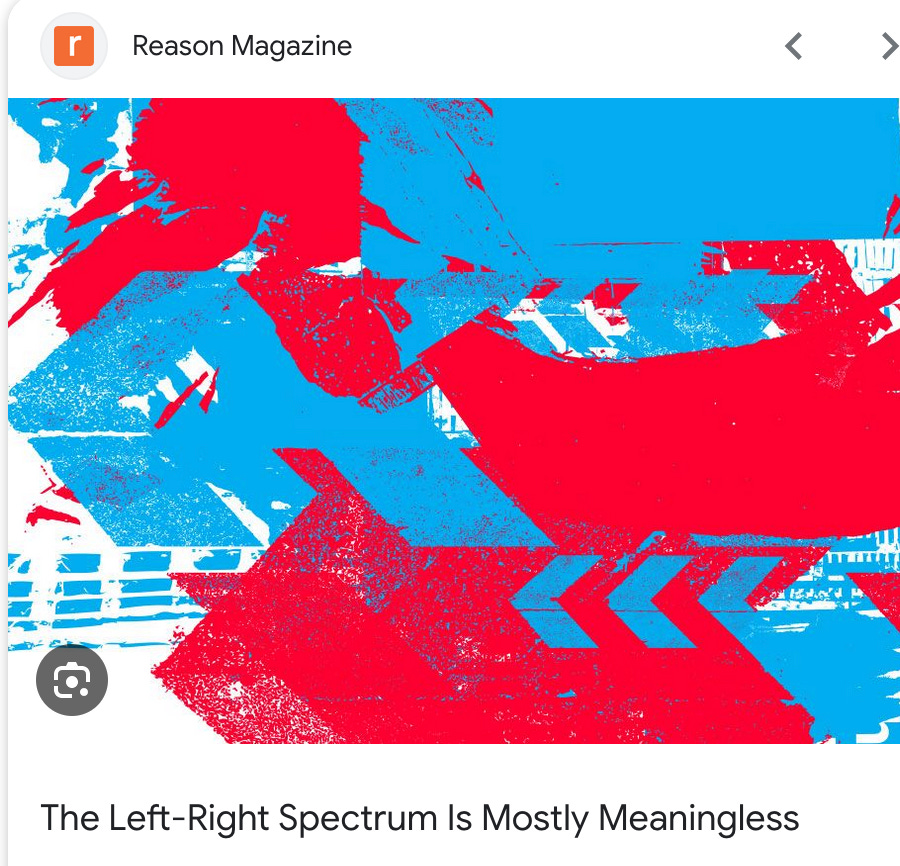Hey folks! As promised, or perhaps threatened, ha ha, here I am again with the newest number of a proposed twenty-times-annually magazine of writings that are so far exclusively my own 'intellectual product.' The BTR premise is twofold, first that I have interesting and entertaining things to say and second that a type of 'consumer' exists who likes to read evocative, instructive, or otherwise enticing English prose. As will ever remain the case, I've got my fingers crossed that the breadth and volume of the material will not alienate even the most inveterate readers and that these subscribers and occasional interlopers will, despite how much is here, elect to pick and choose among each issue's offerings. In any event, thanks for stopping in and all of that sort of thing. I’d love to hear from people; blah blah blah and ta ta!
Table of Contents
—Introduction: Contextual Duties, Human Survival, & Other Interconnected Matters
1. Tarot’s Tantric Tidbits—Some Recent Spreads
2. All God’s Cousins—Chapter V
3. Wood Words Essays—A Few New Pieces, & One ‘Best Seller’
4. Empowered Political Forays—Left & Right, Red & Blue, & Other Meaningless Symbols
5. New Fiction Series—Mad Cows & Englishmen, PART FIVE
6. Old Stories & New—”I Want to Play Too,” continued, Number Four
7. Classic Folk, Rejuvenated—”Little Red,” continued from #3
8. New Folk Fables—Quiet Jack’s Magic Blarney Kiss, continued, Part Three
9. Nerdy Nuggets—Delineating the Science & Politics of Epidemiology
10. Communication & Human Survival—Thoughts About a Long Ago Witchcraft Screed
11. Happy Union Grammar Nerds—’George Orwell’s Passive Voice Classic,’ Part One
12. Erotic Snippets—Fantasy’s Part in a Thespian’s Thoughts
13. Odd Beginnings, New Endings—A First in-Depth Ukraine Report, Section 4
—Last Words For Now
A Look at Cycles in Things, a ‘Big Picture’ of Some Kind or Other
Introduction—”Contextual Duty & Our Viability That Hinges Thereon”
In my view, we all have ‘existential duties,’ a process that over time I’ve made explicit. These pages here on SubStack reflect the primacy of my first responsibility, ‘to create and share beautiful ideas.’ In general, however, all this work, if only because I do share it, also embodies my third requisite, ‘to support sustainable social transformation.’ The premise with which I begin today, in relation to both these mandates, is quite simple: since we axiomatically cannot improve our outcomes in relation to things that we fail to understand, we must relentlessly seek understanding, a requirement that forces us to consider the ‘big picture’ or total context of whatever in the world is happening in the here and now, or whatever has transpired further back in time along related tangents.
My part in all this, as a kind of overall moderator of the present passage, hopefully meets both my ‘beautiful ideas’ and ‘social transformation’ obligations. In this vein, most people with whom I interact, not a gigantic majority but clearly more than half, spout prepackaged ideas about complicated conflicts and catastrophic contrariness—the locus might be Israel, backwoods Maine, or Mongolia, along with countless other ‘hot spots’ around the globe that 8.2 billion seemingly fractious human cousins now inhabit, but the resulting ‘popular beliefs’ look almost identical. Disgust and horror and reflexive ‘blaming’ mark most ‘opinions’ that observers have formulated, yet when one explores what these onlookers really know and comprehend about the situations that they’re seeing and about which they’re expounding, their knowledge base is much more than merely thin and fragile: it is somewhere between nonexistent and false.
In BTR #2, I mentioned a friend’s dissertation on ‘ways of knowing,’ frameworks that form an absolutely central, critical component of any capacity to ‘contextualize’ in the ways that, if we want our kind to survive, we are duty bound to do. So, a core question must always boil down to wondering, ‘how can we know?’ My minor in college was epistemology, which basically seeks to delineate possible answers to this inquiry. In BTR #3, I illustrated how rulers’ propagation of propaganda knitted a significant, perhaps a gigantic, swath of the fabric of conviction and deduction that many folks hold or deploy in their lives, not so much a knowledge net as a puppet’s perspectives, in other words.
In contrast with such a manipulative nexus of ‘knowing things,’ and especially here in the pages of this ‘magazine',’ I am proposing a more or less three-pronged rubric for achieving any kindred semblance to figuring out ‘how things really stand.’ The first step is basically to gather, from recent years or decades, all the pertinent facts of the situation and see how they fit together. The point is not to draw conclusions right away but to be as close to comprehensive as possible about the total situation and the relationships among all the various aspects of the particular reality.
Just as a teeny sample of what this might mean, for example, in relation to Israel and Palestine now, one’s job in this regard would entail logging both Hamas’ October 7th aggressive hostility and Israel’s property seizures and prejudicial social oppression of Palestinians since, say, September 11th, 2001, a reasonable origin date for the present period of time. Almost inevitably here, even a somewhat comprehensive catalog of related factors would end up voluminous, perhaps many times over.
A second piece of any credible positing of reality’s puzzle involves the past, in particular those events and dynamic processes from generations back that demarcate the phenomenon under consideration. Here, inevitably, one would necessarily ‘pick and choose’ those details that had the most obvious connections to whatever difficulties characterize current concatenations. Doing so, one would then seek to develop argument about how those long done and gone situations actually evolved into the tawdry tantrums of today.
Again by way of illustration, as regards crazy carnage right this second in the former Ottoman Empire, one might begin two thousand years ago, with Roman rulers’ decision to expel Jewish rebels whom they did not crucify to environs more or less congruent with present-day Ukraine. One would contemplate the Crimean conflict eighteen hundred years afterward and that war’s distorted echoes in World War One, in itself upheaval that gave rise to such additional central historical components as the Balfour Declaration and the Sikes-Picot agreement for dividing what Americans now almost universally call ‘the Middle East’ between England and France. This presentation of multiple intersecting pasts would continue with America’s providing refuge to Nazis and their collaborators from Eastern Europe at the end of World War Two, and then note the Anglo-American promotion of Jewish migration to Palestine from these wartorn arenas during these same years.
Determining, or at least hypothesizing, how these and other key different developments have unfolded—in tandem, in counterpoint, or otherwise—to yield precisely the present passage is a final part of the historical step en route to approximating understanding in this three-tiered way. The only assumption that makes sense here is that things do add up, that explicating reality is at least theoretically plausible, and that, therefore something akin to connecting threads join past to present in identifiable skeins of human experience.
A wood message illustrates an obvious but easy to ignore attribute of this centrally important point. “But Why?” is its title. “Fundamental Questions—As Often As Not, Some Would Say, the Most Basic & Centrally Important Lines of Inquiry—Start With the Intonation of Skeptical Or Otherwise Incredulous, ‘Why?" in So Doing, Interestingly Enough, Circumscribing Interrogatories That Universally Share Exactly the Same General Answer, to Wit, ‘Because the Eventuality Or Situation Or Result at Issue Makes Sense, Under the Circumstances,’ a Realization, By the Way, That Mandates Our Most Thoroughly Inquisitive Responsibilities in Regard to Said Circumstances’ Origin Stories, Basically a Set of Marching Orders Applicable Any Time That We Find Ourselves, in All Seriousness, Asking, ‘But Why?!”
Finally, in the approach that I’ve evolved, one ferrets out the contradictions or anomalies that always show up in these types of efforts. The theory is that focusing on and interconnecting sensibly these contradictory or otherwise odd pieces of reality’s realm will illuminate or somehow elicit the awareness that facilitates the fullest understanding of the totality of matters at hand. These anomalous conjunctions will often appear ubiquitous, or at minimum nearly so.
How comes Israel to merit hundreds of thermonuclear warheads when Iran’s even establishing Uranium enrichment capacity is a mortal transgression? Why, if Islamic states uniformly support Palestinian ‘liberation,’ do so many of them pursue diplomatic arrangements with Jerusalem that destroy any such flowering of freedom? On what basis does Israel’s vaunted liberal democracy treat Palestinian residents as second or third or ever lower class citizens? If the United States supports ‘human rights’ for all, for what reasons do America’s leaders overlook or otherwise condone obvious transgressions against basic Palestinian humanity? One might go on almost ad infinitum.
In all BTR’s efforts to see clearly and move aptly in response to that clarity, the role of cultural production looms large in determining how we may visualize intelligently. No matter the specific portal that appears in the serialized reporting here, every yarn adds something to this overall contextualizing process. This is particularly obvious in All God’s Cousins, with its far-flung actors who often deliver their lines in relation to the most difficult social conditions of contemporary reality; a contextualization drive also accompanies free-standing fictions, as in the love and socioeconomic landscapes of “I Want to Play Too.”
Similarly, the more confabulated fictions here also touch on this creation of warps and woofs of connection. Mad Cows & Englishmen exemplifies this in a somewhat chilling manner, the mix of seeking income and encountering bludgeoning ‘authority’ a pattern easily applicable to Palestinian ‘guest workers,’ for instance. Even Quiet Jack and Little Red evoke the here and now, especially in relation to matters of gender, sexuality, and social power.
As well, as a matter of course, the varied nonfiction also nibbles away at the boundaries of this potential for clear contextualization. Czeck Uranium and reviews of “Oppenheimer” touch on the Modern Nuclear Project and Uranium’s central economic and political roles. Examination of recent Ukrainian reality sends missiles to explode the foolish constructs that characterize contemporary media reporting about the region. Today, delineating a ‘left-right’ political duality that began when Robespierre sat on the left side of the French revolutionary legislature, BTR examines political verbiage as somehow explicable craziness, looks at Epidemiology’s story and some of its anomalies, and conjoins ancient and present-pass ‘witch-hunters.’ Altogether, this aggregate also further fosters this intercontextualizing methodology, so to speak. Even ‘grammar-nerdiness’ has its sociopolitical and culturally-cutting edges.
Along those lines, a Driftwood Message Art incantation may be useful to quote at this juncture. “Either Art Serves Society, Or, No Matter Its Aesthetic Acuity, It Is at Best Absurd, Worthless Save to Privileged Patrons & Connected Collectors; Either the Arts Are, in an Evolutionary Sense, Adaptive, Or, If Not, Then Those Social Aggregates That Back Such Activity Are Just That Much Less Likely to Manifest Thriving Citizens Whose Offspring in Turn Survive---If, on the Other Hand, Beauty & Representation & Story & Craft & More Do in Fact Foster Human Viability, Then Those Societies That Fail to Further Artists & Their Efforts Will, in Direct Correlation, More Likely Extinguish Themselves, &, in the Thermonuclear Present Pass, Bring About Humanity's Overall Extinction As Well."
In essence, therefore, this new edition of the Big Tent Review perseveres with its core purpose, to show the background, to uncover the underpinnings, and somehow reveal the contradictory intersections of social and political reality in such a way as to make possible our hearing the clue phone, and correctly interpreting the messages therefrom, in a useful and salubrious way. Quite likely, the potential for great grandchildren necessitates such activity.
This Issue’s Spiral Spread
Tarot’s Tantric Tidbits
What the Goddess reveals in these encounters must ultimately lie inside the receiver’s consciousness in some respects. Otherwise, the eerie resonances and congruencies of the fall of the cards would recede into trivialities and non-sequiturs, which doesn’t happen much at all in the readings that I do for myself, nor, so far as I can discern, in the ‘translations’ that I do for others.
In the latter category was a Thesis-Antithesis-Synthesis spread that a fellow performer in the Cauldron Games—a recent gig—plucked in the course of a dress rehearsal’s inclusion of this instance of the ‘Holy Tarot Process,’ if I may be so bold as to name it so. Sporting a circus clown’s makeup, all bustled for her dance, maybe forty-five minutes ahead of her curtain-opening of the entire event, she asked for the complementary reading that I had promised all my new thespian acquaintances.
In the eighty degree top floor anteroom, with vistas of the normally brisk Autumnal Blue Ridge on all sides, I explained how honestly modest and uncertain I am about the entire Tarot eruption in my life, despite being happy to take part in the intrigue and fascination that every particular Reading induces. My young supplicant, a lithe dancer whom I’d never met before our sharing roles on this particular ‘stage of life,’ had revealed herself as a soulful literate sort at our cast potluck a month prior: she not only knew of Barbara Kingsolver, but she had also read both Prodigal Summer’s ‘unexpected love story’ and The Poisonwood Bible’s impassioned missionary’s tragedy.
She immediately looked up a book that I recommended along these lines, another of Kingsolver’s oueuvre, Lacuna, set in both 1930’s Asheville and Leon Trotsky’s Mexico. Her interest in the Tarot then had led me to offer to all my fellow ensemble members a free interpretative session, so to say, a perquisite that she was claiming in the afternoon murk of the Stratford Towers attic.
As I pointed out, I didn’t want to know her question: nada, zilch. I instructed that she focus on it and “let your heart come through your fingertips” both as she shuffled and then went through her own way of selecting cards. In the event, her arrayed trio, in the aforementioned T-A-S layout, was quite evocative in a narrative sense. Respectively, her selections were the Knight of Pentacles, the Four of Wands, and Hermes at his most potent, in the form of Judgment.(continued below the PayWall)…
All God’s Cousins(continued)
Lou’s brother shows up here for the first time, with his legendary life and constant seeking of fraternal connection as Lou makes a cause out of human empowerment and a calling out of ‘beautiful ideas’ and pleased women.
CHAPTER V
After he'd packed his kit—a compass, a flint, a straight razor, a two-liter canteen, a bottle of droppered iodine, an extra shirt and underwear and gym shorts, two pairs of socks, a bar of soap, a toothbrush, a box of bitty safety matches, fifty dollars in tens, and last but not least the razor-honed, finger-sized knife that he'd crafted himself, he showered, though he wasn't a cleanliness nut, far from it. Sweating sanitized him. Punctilious about his demeanor, like he was fanatical about honor, he just wanted to appear well-scrubbed for whoever showed up at Tia Maria's at dusk to send him and his barely noticeable shoulder bag, “my own personal man-purse,” on his appointed rounds.
He still had an hour to go before his newest 'Touchdown Adventure' began; inevitably, given his Catholic upbringing and priestly soul, he reflected on his life over the past five years, as a matter of contract and performance, as a mirror of duty to God and country. Such examining-the-conscience typified this boy who in earlier times would probably have ended up a Jesuit or something similar, a missionary and assassin of the cross and crown.
In the here and now, Tommy John James was a palpable star. A first National Championship attested to that, as did the adulation that he received most places that he went, at least anywhere in the vicinity of Seguin, Texas, where he had landed with Coach Martinson and the Tigers following the debacle in Flagstaff.
That morass had come as close as anything ever had to breaking his resolve to hold on to his integrity regardless of the circumstances, by which he had meant to follow something like a Golden Rule code in his affairs with others in the world. Playing as a walk-on for the Monterrey Monstruos opened his eyes to the reality of the sports business if nothing else. “I mean Jesus! They had me playing tight end, even defensive end, me,” a fellow who had trouble keeping two hundred muscled pounds on his lean frame.
Moreover, the 'corporate culture' where he ended up was “like a freak show at the zoo—only predators allowed.” It combined anarchy with opportunism, the venal with the vicious. “You could either make $200 a week or five hundred bucks a game;” the former option was insurance against the “near certainty that some weeks you wouldn't be able to walk, let alone play football.”
He opted for the $500 and survived seven weeks without either breaching his personal code of conduct or missing a game. “It was hard, motherfucker, let me tell you.” Low blows and late hits were not only not penalized, “they were fucking required basically if you wanted to live through it.” Otherwise, “everybody targeted you as somebody who wouldn't retaliate.”
When Johnny Martinson's “very special agent” had discovered him in the soupy, sulfurous sweat of the Monstruos locker room—broken down air conditioning was just a part of the package—she found a young man at the end of his rope, ready to do anything to extricate himself from the hell that the revocation of his ASU offer had led him to embrace. “I mean, loving football is one thing, but...”
He had been weeping, alone and unwashed, still in his pads, long after his teammates had showered and gone off to party—“the one aspect of the deal that was still fun was how hard these motherfuckers partied,” since a '...tomorrow we die' sort of sensibility reigned. His head was nearly between his knees when Coach Martinson's representative interrupted his rueful reverie.
“Hi, I'm Lucinda Miller. Are you Thomas Jonathon James perhaps?” Straight out of James Bond, sounding like a South Texas sorority sister: “Man was she hot,” standing there, “poker faced, built like a brick shithouse, not a hair out of place.” She had tendered an offer most welcome, and now he was Seguin's darling.
In the here and now of this bicentennial Summer, yesterday evening, after one of his obsessive workouts, which he designated 'pain worship sessions,' when he had ambled into the Beast's Lair, the burned out warehouse where he and some of his wilder mates hung their hats and improvised doors and sleeping quarters, he clearly hadn't known what to expect from the folded sheet of paper that he'd seen, tacked carelessly to the black and pink sheet of painted plywood that covered the front entrance. The florid cursive lettering of 'Big Skipper Johnny,' as he called the coach who shared a name that some gave to T.J. as well, revealed the source of this note, also a potential notice, he had thought, “notification of who the fuck knows what.”
Anything could happen, for sure. “That was the lesson of Bobby Womack and Arizona State,” Tommy reminded himself. The interlude between receiving this current summons and responding to it had passed in a blur of pot and pushups, poker and oneupmanship with his favorite teammates, his quarterback Haley Morgan, the monstrous lineman from Tahiti Ronnie Montez, and two other young men who merited the coveted “Badge of the Beast.” None of them had gotten any sort of notice.
Like T.J., each of the other players in the game was also a “recruit to the cause of freedom.”(continued below the PayWall)…
A Disquisition on Seasonality in a Single Sentence
Another Wand, Additional Wonder: Wood Words Essays
Homily Sticks and Ponder Panels make up the bulwark of Marshall Arts’ efforts. One such wand, now in its ‘third edition,’ has likely rational, if not altogether glorious, advice for those of us who navigate life’s highways and byways. “Though Doing So Allures & Intoxicates Us, Fondly Fancying Fashioning Wands to Whisk Away Worries Generally Overlooks, Or Willfully Ignores, How Our Own Particular Proclivities For Thinking & Acting So Ensnare Us in Grooves of Grievous Despond That, If Only We Managed to Release Ourselves From the Strangling Grasp of the Superstitious, Self-Destructive Dynamic That This Putrid Process Encourages, We Might Readily Recognize & Conceivably Garb Ourselves in the Garments of Our Dreams.”
In the dulcet tones of Gil Scott Herron, ‘good advice is sure ‘nuf hard to come by; bad advice ain’t easy, but it’s free.’ My existential duties lead me to find epiphany’s serenity hither and yon; people simultaneously find these sallies toward reality irresistible and nauseating, alluring because they cannot ignore their quieted bullshit meters and heave relieved sighs, sickening because the very ideas confront them with precisely the social tasks that they’ve spent their lives avoiding, images of JFK’s brains, of MLK lying in pools of his draining lifeblood, of melting reinforced steel towers, all of which dance in their limbic brains and warn, ‘danger Will Robinson! Danger!!!’
In such a pass, then, as ‘new normal’ mass murder shows its technically sophisticated capacity to crucify everybody, and the faucets of bottomless wells of propaganda spurt and spew their combined non-sequiturs and vicious lies, another piece of art comes to mind, from the “Politics & Personal Empowerment” pile. “War & Terror” is its title, a completely congruent quip for the current context.
“War & Terror Serve As Primary Tools in Plutocrats' Standard Practice of Their Pyramid Dreams to Remain Ever Atop the Human Heap: Only Consciousness of This Class Warfare, & Stalwart Solidarity in Reply, Can Avoid Otherwise Irreversible Bludgeoned Drudgery &, Instead, Put Mastery of Nature, Which Only Labor Can Create, Truly at the Service of the Masses of Humanity Instead of Enriching Only This Rigged Game's Self-Appointed 'Masters.'"
What is a fellow who practices the Golden Rule to do in a world where the above assessment is more or less one hundred percent accurate? That’s a fair question. (continued below the PayWall)…
Empowered Political Forays—”’Left’ & ‘Right’ Rule Meaningless Ideas, Or, Why ‘Leftists’ Never Get It Right”
As today’s Introduction notes, the use of every human’s two-handedness to designate political orientation is two and half centuries old. This usage is so ubiquitous as to be almost completely automatic; I recently listened for maybe five or six minutes to a pair of thespian interlocutors discuss I-P issues, Russia’s ‘Ukraine invasion,’ and other out-of-context elements of world events now prominent in the ‘media marketplace.’ I lost count after the total number of comments that deployed handedness, or sidedness, in this way reached twenty-five.
At least several times daily, on average, moreover, somebody makes an observation about the narrator of these forays that uses the metaphor of ‘Left and Right’ to distinguish the sort of fellow that I am. For years now I’ve followed up my instinctual ‘WTF??!!’ with a real question for whoever is using such language: essentially, “do you even know where that phrasing originated or what it fundamentally means?”
Perhaps unexpectedly, or not depending on one’s optimism about human understanding, literally not one interlocutor so far, over the course of five years and then some, has in fact known the provenance of this way of stating matters, a fact that proved doubly true last night, as a pair of fellow thespians and I discussed the present political pass in one way or another. Both of them kept referring to ‘leftwing’ and ‘rightwing’ shenanigans of one sort or another; I made the point that even as a metaphor, this idea was pretty useless ‘inasmuch as the policy-space that separates leftist Biden from rightwing Pence is brief indeed when compared to the gulf that separates Biden from Jim Hickey, with both of these Major Domos in cozy proximity to Hitler compared to the likes of me.’
Because of how this conflation of opposition excludes independent thinkers, mediated spaces so burst with the bullshit and bombast of fake debates that any insistence on logic, or even nuance, simply has no place, in the scheme of things, to appear, and play some useful part, in culture’s landscape, so to speak. This work, BTR, may have plenty of flaws, but being bombastic is not one of them. It does strive to be rational, though, a stalwart participant in conversations about the realm of the real.
As a matter of logic then, given the ubiquity of these ways of speaking and thinking, (continued below the PayWall)…
New Fiction Series
Mad Cows & Englishmen(continued)
PART FIVE(With his query that confirmed that the Professor was concerned about “cow farts,” Norman Bates has asked for the upshot of Dr. Winston’s concerns about feeding humankind, and how, precisely, these concerns have led to his and our Thomas Hawkins’ bizarre incarceration outside any conceivable realm of ‘due process’ and other like liberal niceties.)
"Yes, and one cause, among many, of the rising seas that further complicate an already hugely delicate ecological scenario." Doc paused again, staring at each wall as if searching for inspiration.
"As much as none of us individually might like to confront the fact, you see," his gleaming teeth no longer even vaguely resembled a smile, "we clearly must acknowledge, the conclusion is unavoidable, we simply have to recognize, there's just far too many fucking human beings for this particular moment in history." His wheezy giggle gave me the willies, and Norman's face was not a poster of enthusiasm
either.
Doc's transformation at this juncture still plays out in my mind like a finely edited piece of moviemaking; he puffed up and positively smirked his sense of conquest. "Yet this necessity is also a chance to free ourselves, you see." He nodded at us. "Yes, with a careful, and shall we say, well-preserved, reduction in human numbers of, oh,
maybe, 90% or so, the whole problem of," his hands again conjured smoke in their dance before our eyes, "a ready food supply just, 'poof!' vanishes entirely."
And now Norman saw the climax too, as does the reader, I'm sure. Or I think I'm sure anyhow. Just in case, and because the particulars of the case matter to me, if to no one else, I'll let the cast of our little bizarre drama continue to explain things. (continued below the PayWall)…
Old Stories, & New
“I Want to Play Too”(continued)
(The ax of separation has sundered the magic, newly named couple, with the subtlety of a temporarily beheaded victim who continues to see for a few seconds before hellish darkness exerts its eternal thrall.)
Part Four—A turning point in this extended dance of avoidance and decline took place when Starr finally formalized his and Anna's Spring pact, to take new names and leave behind their old lives. No one who knew him had called him William, Bill, or Mr. James for months, at least not without correction. But he retained, legally, the mantle of the great psychologist.
Eudalia Gray James, Starr's step-mom, enlisted Sally Paladin, the headmaster's wife, in ushering in this penultimate stage. Sally, having counseled with 'Daly' about the melancholy afflicting one of the institute's stars, took to heart a suggestion that the calculating matron of Atlanta high society made. "What Billy needs is an intellectual stimulus that will galvanize his considerable will toward achieving his potential again. This unfortunate fling with that poor girl you use as a child care helper has just got him so confused."
Sally "understood perfectly", and she also comprehended that the woman's generous support for Tripacteia--"I believe so strongly in bringing poorly adjusted children to a stable condition"--obliged the institution to help with young William's rehabilitation. So when Eudalia passed on that a dear friend of her niece had an extra pass to partake of the wondrous wisdom of Werner Erhard, and that she wanted Bill to attend, Sally acted as a go between.
'Daly' reflected that, "Billy is just so suspicious sometimes of anything I want to give him," and Sally assured her that this was an excellent opportunity to provide her stepson with optional leave to pursue professional development. By noon the next day, all the pieces had fallen into place. Sally happened "just to hear of a marvelous opportunity" when Bill's off period brought him to the administrative office for coffee, and he was glad to embrace a week-end diversion.
Anna and I had only seen each other a few times over a two week period when she heard of Bill's plans for the workshop. I had already gotten the outline of the whole tortured affair from Ann and some of her friends, and recognized the likely futility of her continuing infatuation with this new Starr. But she still wanted something to work for the two of them, and with an infallible intuition perceived something sinister befalling her hopes if her estranged lover attended Erhard's seminar.
"You may be right, Ann, but you can't possibly know; just let it be til Monday."
"I do too know things in advance sometimes; I knew when my grandmother and my father died, when my step sister's husband left her. I know I can't let him just go to that meeting."
Her opposition, calling on Bill's promise to spend Friday night with her, unfortunately confirmed her alienated sweetheart in his decision. And of course she was right that his participation would lead to the destruction of any chance they had of patching up their relationship. Not only would her pretty man learn of the wonders of Werner Erhard at this gathering, finding out that people whom we hurt choose to have that happen to them, that something is a "problem only if we say so," that he "gets it" by realizing he bears no responsibility for Anna's feelings. Not only would mundane Bill James formally become exotic Starr Mason at the ceremony's culmination.(continued below the PayWall)…
Classic Folk, Rejuvenated
Here we present a third piece of an initial ‘fairy tale’ recontextualization, a stab at storytelling so as to show therein connecting layers, perhaps, of mythos and psyche and human awareness.
Little Red(an old tale in new garb)(Continued from #3)
(Little Red has seemingly accepted her cruel abduction and pending rape so as to save her grandmother from the hideous fate of becoming a creature like Will, the Wolf.)
CHAPTER THREE— — —Once outside, part of Little Red Riding Hood wanted desperately to flee like the wind through the sunny, brittle light that dappled the
leaves filled with twittering birds, but she instead rapidly finished her toilette while she considered the lore of wolves, hoping that what she remembered about their vulnerabilities was not just folklore and 'old wives' tales' that would merely make her situation more horrendously painful. She washed up in the spring's flow as she focused her thinking to imagine the steps she could take to overpower her opponent, who, no matter how she imagined things, seemed overwhelmingly stronger than she was. She dabbed flower water on her neck and behind her ears and touched the lip of the wolf's cup with the woodsy scent as well, dipping the bulky tankard in the brook until it was nearly full before touching the cup again with her smell-good lotion.
Her knees sank into the mossy loam as she bent to drink long and deeply from the icy water, rising to sigh and prepare to meet her fate. Finally, she reached into her pack to remove the jar of mead that she had carefully protected there. She took a sip and laughed, its tonic effect on normal humans irresistible. The stream of liquor that she added to the wolf's water so depleted the mead that less than half the jar remained, of which, once she had gulped a bit of the cup's almost overflowing contents, she took a final long swig prior to heading back to her Gran's cottage.
"I was just wondering whether I should wake old Grannie or just eat her," sneered the wolf before she was fully through the door.
Little Red merely met his gaze, shrugging off her pack and holding out the tankard, still dripping with fluid. He guffawed, saying before he choked on his laughter, "I'll have some of you first I think," approaching her with mouth open and fangs bared, at which, eyebrows raised, Little Red motioned to throw the cup in the sink.
"Wait!!" roared the thirsty creature; "Maybe I will take a little then," he purred, pawing her as he passed to grasp the sloshing tankard for a long and greedy drink, immediately before which he sniffed at it long and deeply, commenting "Hmmm! It smells like you then, does it?"(continued below the PayWall)…
New Folk Fables
Quiet Jack’s Magic Blarney Kiss—III(continued)
(Molly, having witnessed her lover’s leading her rival to the secret lair that he’d never before shared, has a stoked jealous rage capable of anything from the direst mayhem to the foulest murder.)
…Straight to "The Silver Tankard" she trotted, where she expected, correctly, to encounter her Viscount, pursuing an alternately phlegmatic and triumphant game of backgammon which Sir Robert pursued with such a compulsion that he and his landed cohorts, and the occasional parasitic sharp, clever and skilled enough just to leech a bit of blood without inducing undue hemorrhage, would generally not quit until Saturday noon at the earliest.
The rule in the ‘King of Games,’ that the home board must be closest to the light, originated from dusky, smoky, murky settings such as the public house that boasted a cracked and creaking sign with a ghostly silver goblet, seemingly suspended in the misty air of late afternoon. Inside, drunken men drank more than was good for their well-being but enough to slake their desperation for a better, which is to say altered, state of mind. Rough-hewn chairs, sturdy in their stolid grime, gripped drinkers and players, gathering all and sundry round tables scarred with knife marks and besmirched with the greasy drippings of decades of roasted meaty menu items.
For her part, Molly was decidedly more moist, dripping in fact, than old Thompson, who found much more than a glow on a woman a tad overwhelming, would generally find fetching, but he hardly noticed on this occasion, so locked in mock combat he was. Only one of the seven gentlemen present, in fact, noted Molly's florid nipples, protruding through lace and linen like prominent buttons, this attentive lothario's thirst to drink from such a fountain attenuated by the dark patches of sweat that splashed her garment wherever, underneath, this fiery woman ran the hottest. Thus a priggish distaste unhinged the longing for just the unctuous stream that simultaneously startled and aroused him.
After a brief recovery of her wind, in a voice that every man in the room attended with a silent prayer, of "spare me, Lord, from ever so exciting such a vixen's dire ire," Molly allowed:
"THAT is the last time I'll let that bastard cheat me thus!"
Given her peremptory spasm of spiteful spirit, even had he not felt both a powerfully delightful interest in learning the source of her complaint, and an equally potent general interest in delighting the almost irresistibly fetching Miss Molly, Sir Robert would have turned his regard to her. As matters stood, he responded immediately and intuitively, knowing the bloke she had impugned was our 'Quiet Jack,' who had, wittingly or not, so alienated their shared mistress that she was ready to give him a whack.(continued below the PayWall)…
Nerdy Nuggets
The apparently odd realization that science’s search for ‘truth’ is inherently political is perhaps nowhere easier to discern than in the deconstruction of the saga of epidemiology in the halls of knowledge. Today, only the briefest introduction to this intellectual and sociopolitical process, and its attendant economic consequences, will be forthcoming, as I cover instead cases of actual epidemiological fieldwork that I have reported, incidents truly revelatory about the discipline’s utility to the powers that be at the same time that individual practitioners frequently enough produce results that are, despite their scientific validity, so unacceptable as to be systematically discarded.
Long ago indeed, before the current era even, “Hippocrates sought a logic to sickness," arguing that environmental influences played determinative roles in how sickness happened and how badly it affected its victims. Interestingly enough, in the millennia that passed before European investigators retrieved these threads, especially in the eighteenth and nineteenth centuries, Islamic scholars and practitioners were translating and applying Hippocrates’ insights about the social and other contributory factors of disease.
Just as a way to illuminate the importance of delving matters in this way, one can note that a search along these lines, <epidemiology history OR origins>, yields over 427,000,000 hits. Clearly, in our COVIDified current context, people are inquisitive about disease and how we think about and respond to it.
The most common responses to such issues these days are systematically bureaucratic rather than individually inquisitive. The Centers for Disease Control, the National Institutes of Health, the National Center for Biotechnology Information, the World Health Organization, and countless other denizens of the alphabet soup of administrative oversight that in some sense manages epidemiology in the here and now all illustrate this conclusion. In part, such developments often happened, or come into existence, in response to the tales of such BTR subjects as Upton Sinclair, whose novel, The Jungle, argued dispositively, to say the least, that slovenly profiteering was unhealthy in the food industry.
Unfortunately, one might contend, these cabinets of control and arbiters of administration, whatever their erstwhile ‘public’ faces, manifest decidedly private agendas that serve plutocratic and corporate agendas. ‘Agency capture’ is the phrase that astute observers such as Robert F. Kennedy, Jr. use in describing this kind of surreptitious service to other than truly ‘public health.’
A search for just the phrase elicited a modest 518,000 links, the first of which was a Senate Hearing from 2010 with the evocative title, “Protecting the Public Interest: Understanding the Threat of Agency Capture." Several witnesses proposed that, given the omnipresence of administrative oversight, this type of eventuality could pose a fundamental threat to any potential for democratic governance.
BTR’s previous installment proffered the text of a popular Driftwood Message Art missive in this regard. “Selling Science” has this to say. “Having Ever Risen in Tandem With Expanded Knowledge & Its Application to Policy & Practice, Living Standards, & Their Ineluctable Universal Appeal, Have Assured That Capacities to
Predict & Control Nature Have Grown Apace, Eliciting Sales of Science & Its Legerdemain to High Bidding High Rollers, Who Now Control Both 'Public' & Corporate Campus Labs That Engender & Then Engineer Often Predetermined Consequential 'Truth' That Potently Promotes Paymasters' Profits, Altogether a Ubiquitous Dynamic That Transpires in No Realm More Clearly Than That of Public Health & Social Welfare."
That these sorts of ‘conflicts of interest are omnipresent’ is not news. On the contrary, any sort of governmental position these days almost presupposes that a particular administrator has earlier employment at the behest of the exact ‘interests’ that his or her specific overseeing agency monitors. (continued below the PayWall)…
Communication & Human Survival—A Long-Gone Witchcraft Screed
And a Concluding ‘Endorsement’
The Library of Congress will ever remain an astounding resource. A recent blog post there illustrates LOC’s combination of resonance and breadth with an article about a prominent thinker from four hundred-odd years ago who wanted to prosecute and, with extreme prejudice and torture, convict and then execute witches whom he at least appeared to believed were ubiquitous in his midst.
In reading this review of Jean Bodin’s Demon-Mania of the Witches, I find myself confronting afresh the dementia of interlocutors who delve the depths of depravity of their nemeses on the basis of aspersions about purported mendacity, labels of erstwhile iniquity, that have their roots not in the actions or beliefs of others, but in the depraved depths of their own psychic swamps of filthy mire, or from their perspective, something purer and truer and higher, but so implacable as to pave the path to hell with righteous bigotry and bombastic certainty.
We will never know how many women burned in congruence with Bodin’s righteous furies, agonies that belied his practical attainments and political acumen, as if Donald Trump had risen from humble beginnings. So too, if ever present-day witchhunters manifest our thermonuclear extinction, no one will survive to recognize how, despite all our gifts and abilities, this putrid perfidy preemptively palpated people’s utter extermination, the epitome of hell indeed, an electively engaged eternity of nonexistence.
Current scholars study Bodin for other reasons than exploring the relevance of the arc of his existence in today’s explosive context. Although such a choice is legitimate, LOC’s dandy blog post proffers plenty of plausibly pertinent rationale for examining this ‘legendary’ witch-hunter with an eye to our own lives.
As a Stanford Encyclopedia of Philosophy entry on the thinker reveals, the social context of Bodin’s day and time, sixteenth century France, reveals eerie similarities with the social battles of today, inasmuch as the most intense and vicious animosities echoed socioeconomic and ideological variations that depended for their allure on alliances with different sections of the ‘high and mighty’ of France then, very much like allegiance to MAGA’s reaction or liberalism’s ‘woke’ awareness identifiably reflect loyalty to certain sectors of today’s upper crust. In essence, “Bodin believed that the ‘true faith’ was the cause of the civil conflict that afflicted France. Nevertheless he added that there was no better proof of Christianity’s truth(as the ‘True Faith’) than that ‘human forces conspire against it.’”
Two attributes of Bodin’s approach, through which he navigated his way to gain access to the ears of kings, particularly demarcate admonitions to the here-and-now in regard to this popular skeptic of the sixteenth century. The first was the absolute primacy of the ‘executive function,’ an ascendancy that eviscerated natural, constitutional, or democratic sway over the course of things: a very imperial, ‘corporate’ methodology for certain. The second was an elevation of rectitude over such niceties as evidence and justice to the extent that Bodin recommended torture to obtain ‘confessions’ from any suspect in the clutches of authority. If we just substitute radical or terrorist for witch, Abu Ghraib and Guantanamo seem to stare at us over a gulf of thirty generations.
Commentators today bandy about notions of a ‘return to feudalism’ (continued below the PayWall)…
Happy Union Grammar Nerds(#2)
(Grammar and style go hand in hand. And sometimes, no doubt, we want to obscure the subject and emphasize something other than the person, place, thing, or idea that is a thought’s true central motif. However, despite lawyering, lobbying, and other sources of such slippery sorts who might favor this mystifying locution, most folks more likely benefit from plain speech, directly spoken.)
Passive Voice, George Orwell, General Outrage
Disputes & Brouhaha About Promoting Or Condemning the Passive
INITIAL THOUGHTS
To report facts, to explore causes, to traduce complexity so as to reveal what underpins it: these represent just a few of the reasons that written language has such massive potential power for those who would move beyond intuition and belief to a realm of knowledge and understanding. Yet we must admit that another function prevails at times in our linguistic endeavors: to obfuscate reality, to deflect attention, to use nature’s intricacies to deepen incomprehensibility and thereby leave the interpretation and determination of what is happening, as well as what might be necessary to bring about change in the arenas of policy and action, up to those whose ‘stakeholding’ interests are most palpable, easiest to ‘monetize,’ and so on and so forth.
In relation to the first purpose, passive voice construction normally is worse than useless. It hides what the writer seeks to reveal; it evades what the narrative purports to pin down.
In the second case, however, no more perfect vehicle exists than passive voice for seeming to admit and describe and assess, without actually assigning responsibility, determining causation, or explaining how matters have reached particular passes. As noted in the previous installment of the Happy Union Grammar Nerd, such attributes make passive usage ideal for attorneys, propagandists, politicos, diplomats—even criminals who have the necessary sophistication to care about how they express themselves.
This current H.U.G.N. episode consists of three primary components, along with the usual concluding sections that provide examples of and alternatives to problematic usage.
Initially, we examine a set of contentions that flow from neuroscience, cognitive science, and linguistics, about the likely ‘hard-wired’ preference for passive voice usage in the speech centers of the brain, a deconstruction that concludes that although writing emanates from speech, it is far from precisely the same, so that one may prefer to say, “He was shot,” but persist in making a choice to write either, “The officer shot the young man,” or, “Somebody obviously shot the youth in the leg and then blew his brains out.”
The follow-up to this briefing offers readers a chance to ponder George Orwell’s oft-quoted 1946 essay, “Politics and the English Language,” in which the redoubtable storyteller and political scribe denounced usage of the “was-shot” variety, at the same time that his condemnation practically overflowed with just this sort of construction.
Finally, some of the hundreds of thousands—or millions—of particular instances of quibbling about this matter appear, a few of which mention Orwell and the anomaly of his insisting that writers ‘do as he said, not as he did.’
As always, this Happy Union Grammar Nerd encourages any reader who cares to do so to challenge this analysis; to present specific examples of problems that seem impossible to solve in this or some other area of style or usage; to share piquant examples or personal experiences of ‘life in the passive lane’ that modern mediation has become.
For those who love data,(continued below the PayWall)…
Erotic Snippets—Fantasy Play in an Actor’s ‘Inner Work’
I’ve been in a play since last I posted, the craft of acting something that I’ve studied, and enacted, as it were, now and again over the years. Creating a credible character, except for random miracles, depends largely on inner work, one version or other of Stanislavsky’s ‘Method Acting’ formula from a century or so ago. In the event, I had the task of confabulating a ‘wizard of a bizarre and nonexistent reality,’ so as to make of my script something other than the verbiage of bombast. In this by-nature introspective process, sex fantasies have proven a key component of my successful completion of this job of encompassing a role.
Thus, I present “Agatha’s Ecstatic Tantric Agonies, Tatiana’s Tempestuous Triad, & Their Tempting Morsels of Engagement.”
As the hours stretched during which I could not undo my spell on the pair of miscreants, and their imploring pleading pants begged me to reverse matters and return them to their now penitent human forms, my thoughts turned to the magical reservoir at Stratosphord Towers, where Genevieve’s brainstorming wackiness unfolded in all its odd and Tantric tidbits.
A new resident there, part of their Stratosphordous Program, Agatha Eulogia, reputedly had access to mystically luminous legerdemain, a lucidity that I craved as I pondered how negligent I’d been, only having solidly memorized the reversing-spell from the pigs into which I generally transubstantiated those who insisted on afflicting me; what I’d been thinking when I elected to turn these two into Labradors—one black and one golden, one Homer and the other Biscuit,—I’ll never know. My knock on Agatha’s suite’s entrance was unfinished when the door gave way to reveal the beastly female herself, the persona of a lioness in the pelt of a salubriously sleek ferret sprite, her face and her feet the only surfaces not coated with a delicate filigree of golden ringlets, bushiest where they clumped in thick bushes that bristled with bubbling juicy jam.
Her delicately chiseled features and noble, unblinking orbs regarded me as fated, at once prayer and prey. The commanding fingers of her right hand drew me into her arms in a flushing rush of full body contact.
Of course, she was wearing not even a swath of fabric, not a sheer sheet of transparent gauze. Her breasts had the flow of rivulets with hidden depths, each punctuated by niblets that seemed fashioned for nibbling’s inducement to giggles. Moreover, despite multiple other things at the front of my mind, her open desire in relation to the visit that I’d scheduled a mere thirty minutes prior pulsed from her pudenda to mine with the forceful clarity of hormonal beacons over unclouded new-moon waters, so that my cock leapt like a hungry colt at the hint of ready oats.
Her eyes drew me on, as her smile parted in the frank laughter of wanton wanting. “I have been anticipating this meeting,” she said before her mouth swallowed my lips and the tongue that I proffered to hers, darting over my teeth like a hummingbird’s dancing through slippery orchids.
How long did the kissing cavern that we created continue? Its timeless tide of washing waves hissed with the winds of our whispering sighs; my clothing also disappeared, so that, inescapably, we guffawed gaily through gleeful embraces that knit our gushing in ever-more tightly glued arrays of gaudy abandoned glory in which we glided along like swimming beavers in swiftly moving depths, rolling in a thrashing flashy frolic of flesh and fur on the foamy, mossy surfaces of her quarters’ fireside cushions.
The rising and falling of the flames there, a pulsating warmth against Winter’s outside chill, echoed the arching cascade of her pleasure’s pounding as she straddled me and mounted the horned-saddle she found there until, her energies building to a boiling crescendo, she faced the ceiling and howled with delight, allowing me as gasps became whimpers to hold her so closely that our hearts’ throbbing syncopated as similarly as did the contractions of climactic completion at our rooted core.
For three evenings and two days, we disported thus, consuming much, much more of each other than of anything else that we ate or drank or even breathed, the very scent of our sex the oxygen that energized our persistent, ravishing, jubilant enchantment with each other’s fleshy exuberance. In the event, she taught me the correct ‘reversing spell,’ from confabulated hounds back into humans.
Thereafter, we parted, both depleted and renewed. Since then, though we have danced delectably in undeniably mutual dreams of creamy delight, I’d seen no evidence of her delicately embodied miracle till, on a very different mission altogether, more evolved and portentous, I encountered her daughter, whose allure amazingly amplified her mother’s inextinguishable ardor and wafted Agatha's luscious scents and all their odor of enticement.
But that is a story for another day. (continued below the PayWall)…
Odd Beginnings, New Endings(continued)
The ubiquity of Ukraine’s impact persists, as Israel’s and Palestine’s horrors explode each day with a new batch of corpses. One can, with minimal effort, find a two thousand year dynamic that interconnects these apparently separate geopolitical struggles.
No doubt, given the lines of kith and kin that connect all human beings, a deep enough digging might reveal these types of linkages anywhere on Earth these days. In any case, here we have the next portion of BTR’s first extensive report on Ukraine as such.
Past As Prologue in Ukraine: Communism & Reaction, Fascism & War, Finance & Community in ‘Little Russia’
Section Four— — —(The Homily Stick that has started us out here remains apt, to wit that “The Needle of Consciousness Will Penetrate Next to Nothing If Our Thirst for Knowledge Does Not Outweigh Our Fear of Honesty.” We are picking up in the midst of an assessment of that darling of Ukrainian fascism, Stepan Bandera.)
…The biographical facts are accessible in many places. Bandera came of age in the aftermath of the Soviet’s coming to power. He and his family, near the Polish border, were strongly nationalistic and accepted German help and funds. They participated in various actions during the Soviet years and orchestrated multiple slaughters of Poles and Jews and Communists until the Nazis themselves turned against Bandera and had him interned for the rest of the war. He died as a result of cyanide poisoning at the hand of the KGB in 1959.
The key facts here—those which more than any of the others ‘define’ this fellow—were the alliance with Nazis early on; the insistence on an ethnically ‘pure’ nation in an area with literally dozens of nationalities; the promulgation of mass murder. No matter what extenuating circumstances exist, one can no more ground a polity’s present on such a past, without fascism, than one can hail to Hitler as a hero and escape the Nazi brush.
Anyhow, as in the case of Bandera, more generally too, laying the groundwork for WWII, German interests in some cases merely networked with former or current English or French operations. Intelligence networks on the borders of and perhaps inside of the U.S.S.R. thus played a sinister role in preparing for what was one obvious ultimate purpose of Nazism, the utter evisceration of the Soviet Union and elimination of a Communist regime there.
The recruitment of local residents on the road to invading Russia was obviously a part of this process. Trade contacts, communication with public officials—such as police, administrative officials, public health functionaries, and more—and other means facilitated Western, and ultimately Nazi, access to knowledge of and power inside of Ukraine and other areas at the borders of Soviet control. These connections soon enough came into play.
The horrors of the war period in Ukraine stagger the imagination. The worst massacres, the most casual brutality, the most hideous violence and nonchalant bigotry took place in and around Ukraine. And for two years, Ukraine was a Nazi locus, till the Red Army—with tens of thousands of eager Ukrainian recruits—rooted them out.
One way of thinking about such things is to state that on June 29-30, 1941, German and Ukrainian operatives undertook the monumental task of slaughtering 33,000 Jews and Communists at Babi Yar, near Kiev. The hourly rate boggles the mind: a thousand corpses per hour; twenty thousand hasty burials per day; such statistics induce nausea.
The summary murder of as many as 50,000 more in Odessa a month later—this time with Romanian and local troops and police—imposes a similar psychic space. That both of these events—most people killed and the third-largest massacre of the entire Holocaust—occurred in Ukraine exemplifies both the complicated mayhem that the region is capable of manifesting and the presence in these places of agents with whom Nazis had for some time been in contact.
Another way to look at these developments is through the lens of literature. Here is Mikhail Sholokhov, the first Soviet Nobel literary laureate, whose iconic And Quiet Flows the Don is in significant part a Ukrainian yarn.
“His entire face was a cry; bloody tears were raining from his eyes that had been forced out of their sockets. …(O)ne leg, torn away at the thigh, was dragged along by a shred of skin and a strip of scorched trouser; the other leg was gone completely. He crawled slowly along on his hands, a thin, almost childish scream coming from his lips… . No one attempted to go to him.
‘Both legs gone!’
‘Look at the blood!’
’And he's still conscious.’
Uryupin touched Grigory on the shoulder… . (and) drew Grigory along by the sleeve… . Under Zharkov's belly the pink and blue intestines were steaming. The tangled mass lay on the sand, stirring and swelling. Beside it the dying man's hand scrabbled at the ground.”
The point of any such capsulization, whether empirical or narrative, however, includes the following idea. These facts and atrocities resulted from consciously adopted directives. They were not accidents; nor miscalculations; nor mistakes. (continued below the PayWall)…
Last Words For Now
These once a month issues have even larger servings of text and story than do the bimonthly profferals. OMG, what is this shit? At minimum, it is writing for readers to ponder and blah blah blah.
The next issue will ‘hit the newstands,’ with its first-ever media-deconstruction essay, December first, for the second once-monthly installment. Jimbo would love to hear from you: loujamlitgam@gmail.com.
Keep reading with a 7-day free trial
Subscribe to Jim’s Substack to keep reading this post and get 7 days of free access to the full post archives.



















